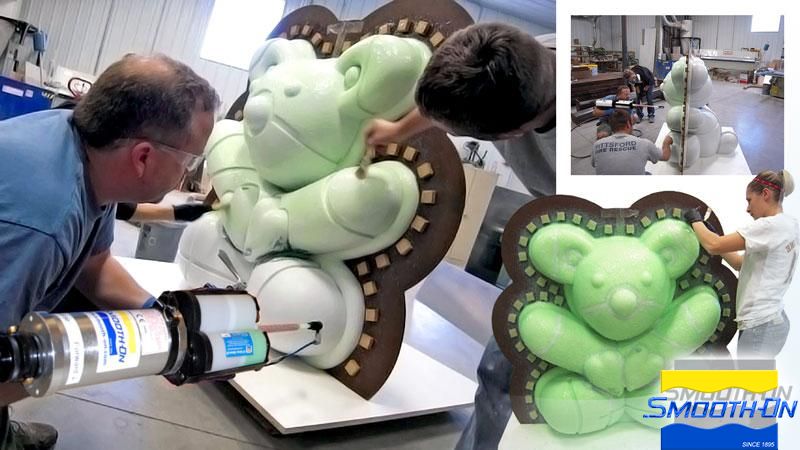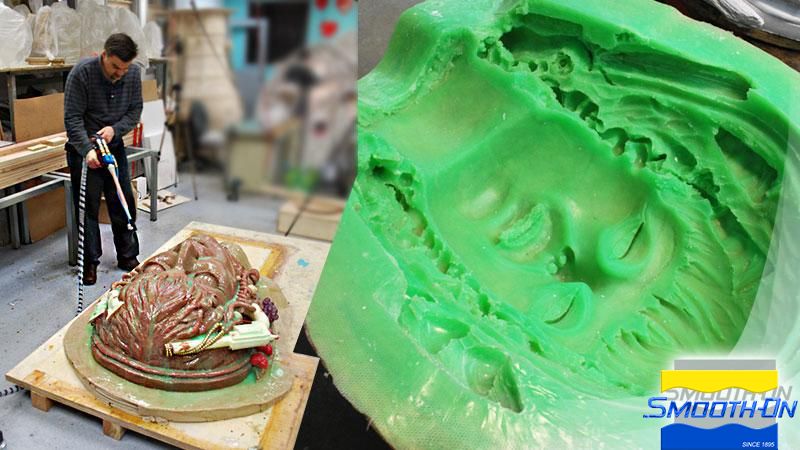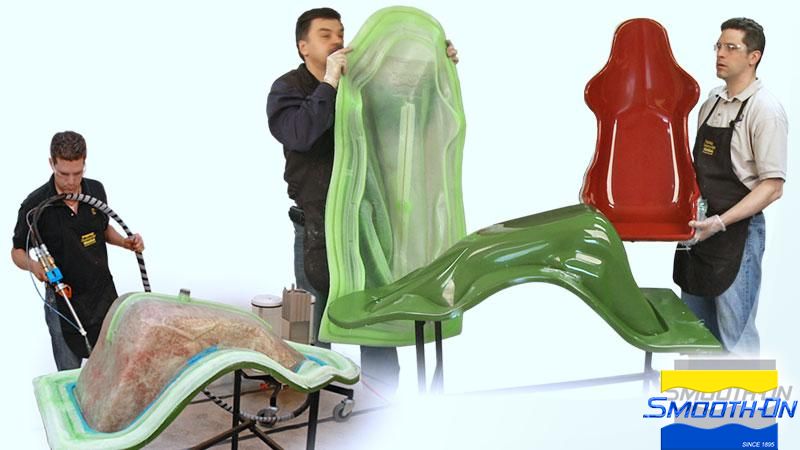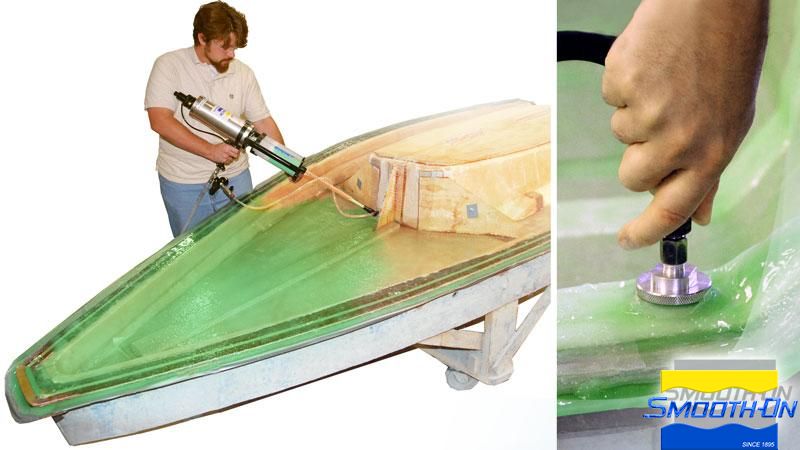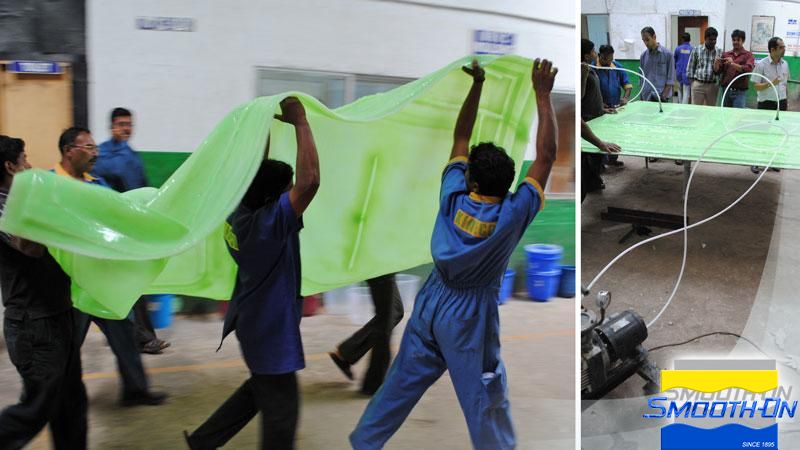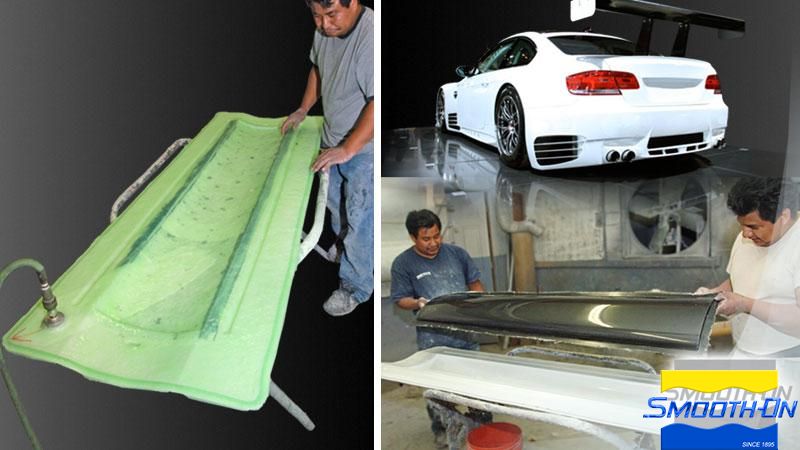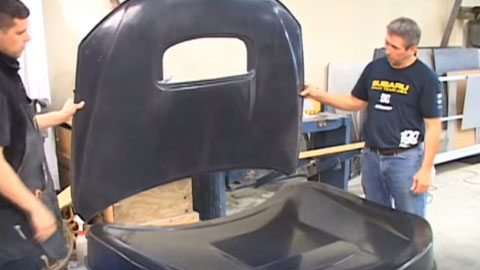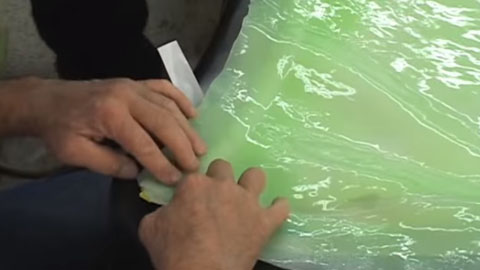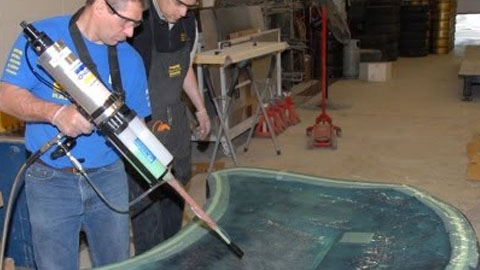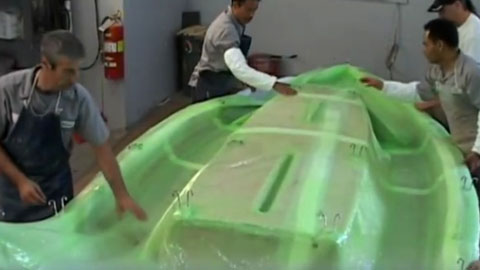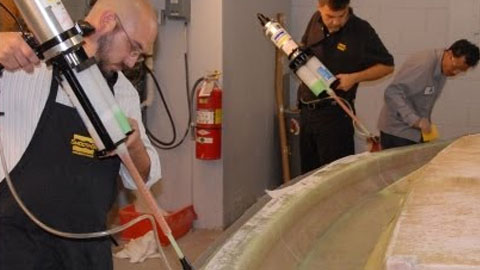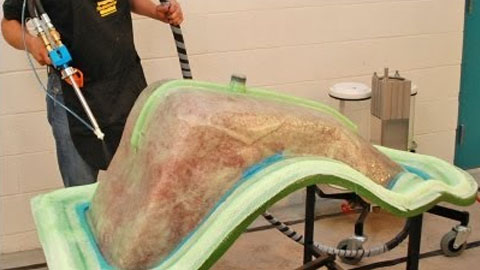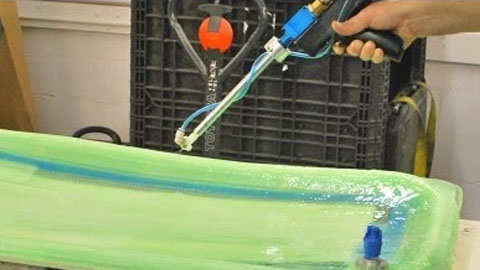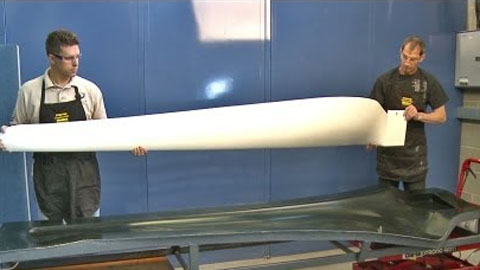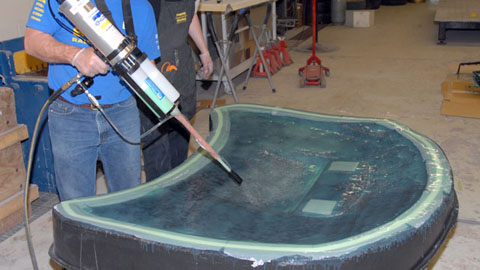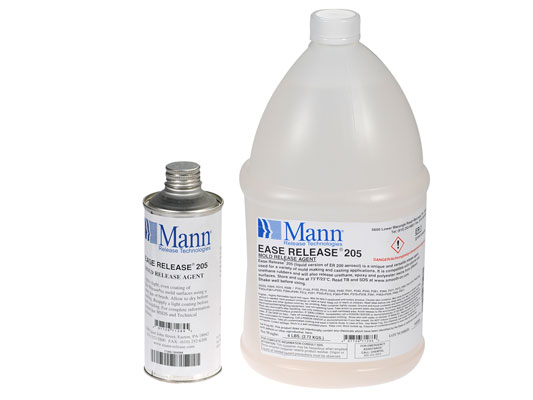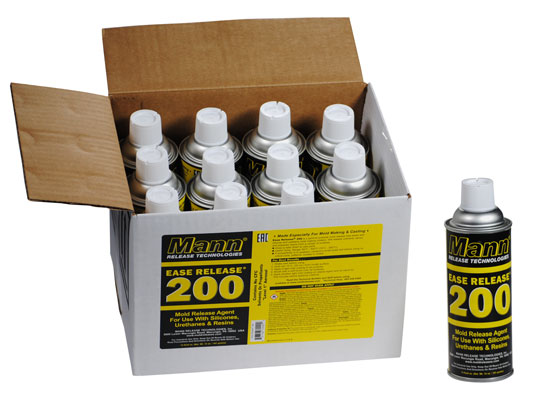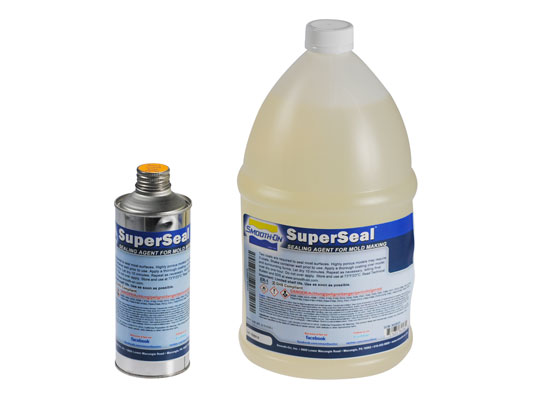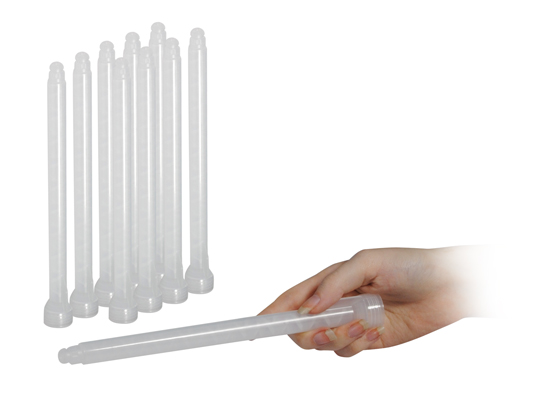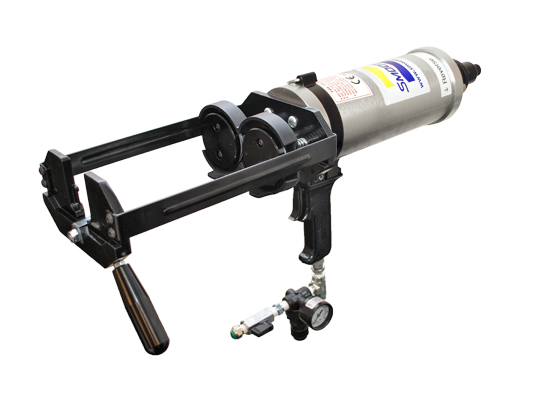EZ-Spray® Silicone 20
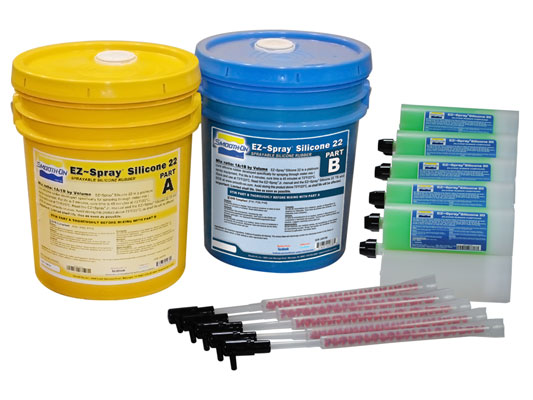
特征
EZ〜Spray®硅胶20可有效制造用于生产复合材料零件的快速、经济高效的真空袋。只需几分钟,即可将新喷涂或注塑的袋子从模具中取出,并立即用聚酯或环氧树脂系统进行生产。EZ〜Spray®硅胶与传统真空袋装系统相比的优势在于可以准备好的硅胶袋生产的速度,从而节省大量时间和人力。喷涂前请阅读EZ-Spray Junior手册
说明
Because no two applications are quite the same, a small test application to determine suitability for your project is recommended if performance is in question.
Cure Inhibition - Platinum silicones are especially susceptible to cured inhibition by a variety of contaminants (such as sulfur and uncured epoxy resin) resulting in tackiness at the pattern interface or a total lack of cure. If compatibility between the rubber and the surface is a concern, a small-scale test is recommended. Apply a small amount of rubber onto a non-critical area of the pattern. Inhibition has occurred if the rubber is gummy or uncured after the recommended cure time has passed.
To prevent inhibition, a “barrier coat” of clear acrylic lacquer sprayed directly onto the pattern is usually effective. Allow to thoroughly dry. If casting silicone into silicone, use Ease Release 200® only.
Note: Even with a sealer, platinum silicones will not work with modeling clays containing heavy amounts of sulfur. Do a small scale test for compatibility before using on your project.
If there is any question about the effectiveness of a sealer/release agent combination, a small-scale test should be made on an identical surface for trial.
DO NOT ATTEMPT TO SPRAY RUBBER OR PLASTIC WITHOUT FIRST READING THE EZ~SPRAY® JUNIOR MANUAL!
Safety - Spraying should be done in a well-ventilated area.
Breathing protection: Everyone in the spray area should wear an independent air supplied hood or NIOSH approved breathing mask. You should also wear vinylgloves and long sleeve garments to minimize skin contact.
Coverage Rates: Vacuum Bagging
- One cartridge (3.75 lbs., 1.7 kgs) will produce a 3.57 square foot (0.33 square meters) bag at a thickness of 3/16” (4.8 mm).
- One 5 gallon unit (80 lbs. / 36.29 kg) will cover a 76.2 square foot (7.05 sq. meters) area at a thickness of 3/16” (4.8 mm).
- One 55 gallon drum unit (880 lbs. / 399.19 kg) will cover a 838.2 square foot (77.55 sq. meters) area at a thickness of 3/16” (4.8 mm).
Applying The Rubber - This product must be sprayed in layers. 3 to 4 very thin layers (0.08” / 2mm per layer) are adequate to build a minimum final thickness of 0.25” (6.4mm). Start at one end and spray a thin, uniform layer across entire tool. Go back to original starting point and apply 2nd layer to entire tool. Repeat until a minimum 0.25” (6.4mm) thickness is attained. If spraying a small tool, let material gel for 2 minutes before applying the next layer to prevent sagging. Spray undercuts and recesses first. Have an extra pair of hands to brush rubber as it is applied. Let the first coat dry for two minutes at room temperature or when it becomes “tacky” before adding the next coat. Repeat until the necessary thickness is achieved. Do not allow rubber to fully cure between layers, as delaminating may result.
Curing - Allow the rubber to cure for at least 20 minutes at room temperature (73° F/23° C) before demolding. Do not cure rubber where temperature is less than 65° F /18° C. Post curing the rubber after rubber has cured at room temp. (applying heat – 145°F/60°C for at least 1 hour) will increase physical properties and performance.
Using The Mold Or Bag - A release agent is not necessary; however using a release agent prior to casting lengthens the production life of any rubber. The type of release agent to use depends on the material being cast. Universal® Mold Release is good for releasing resins recommended for most applications and is available from Smooth-On or your local distributor.
Mold Performance & Storage - Fully cured molds or bags are tough, durable and will perform if properly used and stored. The physical life of the mold depends on how you use it (materials cast, frequency, etc.). Casting abrasive materials such as concrete will eventually erode mold detail, while casting non-abrasive materials (wax) will not affect mold detail. Using the right release agent is essential in all cases. Contact Smooth-On to discuss your particular application. Before storing, the mold should be cleaned with a soap solution and wiped fully dry. Two part (or more) molds should be assembled. Molds should be stored on a level surface in a cool, dry environment. Do not stack molds; expose them to moisture or UV light.
